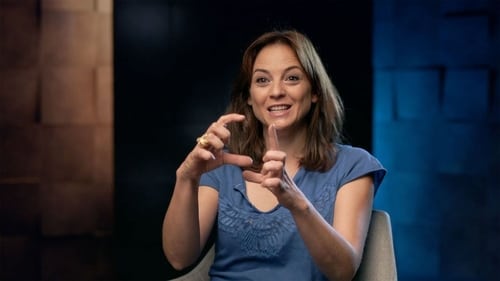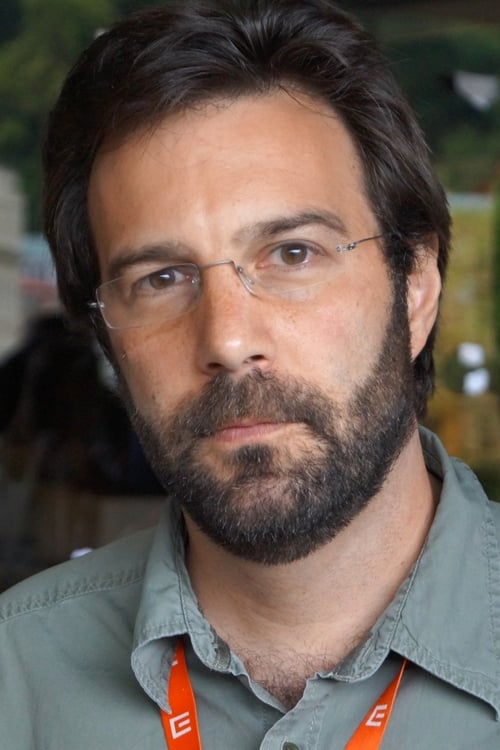Sergio Oksman
출생 : 1970-01-01, São Paulo, São Paulo, Brazil
약력
Sergio Oksman (São Paulo, 1970) studied journalism in São Paulo and cinema in New York. After a period of work in Folha de S.Paulo and TV Manchete, he moved to Spain, where he made documentaries and reports for TV. He is currently professor and director of the Documentary Department of the Escuela de Cine y Audiovisual de la Comunidad de Madrid (ECAM).

Editor
The 70th anniversary of the “Fotogramas” magazine comes in the shape of a sentimental voyage through the history of Spanish cinema thanks to a mosaic of voices represented by people who make films, those who write them and those who consume them. The documentary pays tribute to the readers of “Fotogramas” helped by the leading figures of Spanish cinema, who will read to the camera the most representative letters received at its offices in the history of the magazine.

Writer
The 70th anniversary of the “Fotogramas” magazine comes in the shape of a sentimental voyage through the history of Spanish cinema thanks to a mosaic of voices represented by people who make films, those who write them and those who consume them. The documentary pays tribute to the readers of “Fotogramas” helped by the leading figures of Spanish cinema, who will read to the camera the most representative letters received at its offices in the history of the magazine.

Director
The 70th anniversary of the “Fotogramas” magazine comes in the shape of a sentimental voyage through the history of Spanish cinema thanks to a mosaic of voices represented by people who make films, those who write them and those who consume them. The documentary pays tribute to the readers of “Fotogramas” helped by the leading figures of Spanish cinema, who will read to the camera the most representative letters received at its offices in the history of the magazine.

Sergio and his father, Simão, haven’t seen each other for over 20 years. On the eve of the 2014 World Cup, Sergio returns to his hometown, São Paulo, hoping to watch the games with Simão, as they used to when he was a kid. It seems to be a perfect plan for a father-son reunion: a whole month together, their schedule based on the World Cup calendar. But as the days go by, their relationship starts to wander into unknown territory and their pact to watch the entire tournament together turns into a dangerous ritual…

Writer
Sergio and his father, Simão, haven’t seen each other for over 20 years. On the eve of the 2014 World Cup, Sergio returns to his hometown, São Paulo, hoping to watch the games with Simão, as they used to when he was a kid. It seems to be a perfect plan for a father-son reunion: a whole month together, their schedule based on the World Cup calendar. But as the days go by, their relationship starts to wander into unknown territory and their pact to watch the entire tournament together turns into a dangerous ritual…

Director
Sergio and his father, Simão, haven’t seen each other for over 20 years. On the eve of the 2014 World Cup, Sergio returns to his hometown, São Paulo, hoping to watch the games with Simão, as they used to when he was a kid. It seems to be a perfect plan for a father-son reunion: a whole month together, their schedule based on the World Cup calendar. But as the days go by, their relationship starts to wander into unknown territory and their pact to watch the entire tournament together turns into a dangerous ritual…

Writer
After appearing in the film Rosemary's Baby, by Roman Polanski, Elmer Modlin ran away with his family to a distant land, where they shut themselves inside a dark apartment for thirty years.

Director
After appearing in the film Rosemary's Baby, by Roman Polanski, Elmer Modlin ran away with his family to a distant land, where they shut themselves inside a dark apartment for thirty years.

Editor
On July 13, 1924, Ernest Hemingway was on a balcony in Pamplona, Spain and saw a wounded main lying on the other side of the street. He became consumed with the feeling that he was that man, seeing himself in the near-dead Spaniard who had been attacked by bulls. "I am him," Hemingway later wrote. It was the very first time he wanted to be someone else, so he created the character of the adventurous writer. Notes on the Other follows the example of Hemingway's remarkable sensation in the form of an annual Hemingway lookalike contest in Key West, Florida. Dozens of older men do their utmost to be Hemingway, but what are they looking for?

Director
On July 13, 1924, Ernest Hemingway was on a balcony in Pamplona, Spain and saw a wounded main lying on the other side of the street. He became consumed with the feeling that he was that man, seeing himself in the near-dead Spaniard who had been attacked by bulls. "I am him," Hemingway later wrote. It was the very first time he wanted to be someone else, so he created the character of the adventurous writer. Notes on the Other follows the example of Hemingway's remarkable sensation in the form of an annual Hemingway lookalike contest in Key West, Florida. Dozens of older men do their utmost to be Hemingway, but what are they looking for?

Writer
Documentary about Al Lewis. He sits in the make-up chair and remembers part of his 92 years life.

Director
Documentary about Al Lewis. He sits in the make-up chair and remembers part of his 92 years life.

Director
What starts out a standard talking head doc about one woman's experience in Auschwitz during WW2 turns into a picture of an aging Hungarian woman - Ms Emmy - and how having red hair saved her life. The filmmakers don't hide their involvement in the making of the film, rather are continually bossing her around, which allows us to appreciate the density, detail and focus of Ms Emmy's reflections.


